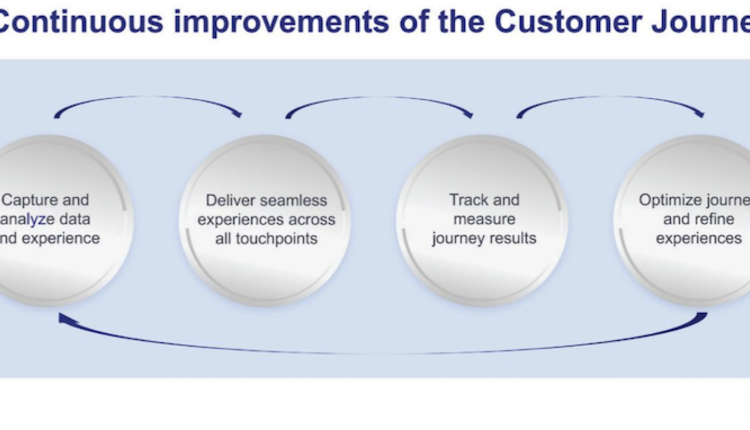If you're like thousands of businesses across the globe, you are evaluating the opportunities to "go paperless." Recent mid-market surveys indicate that document management is ranked in the top five IT initiatives being undertaken.
Why the surge in interest in document management? For many companies, it's because IT projects involving document management have an extremely high return on their investment. For others, it is compliancy issues from increased federal regulations legislating privacy and fiscal reporting. And for others, it may be a "green" initiative. Or simply, because of the strong productivity gains and cost reductions.
A common concern when evaluating document management solutions is to understand what questions to ask to decipher the true competitive differentiation between solutions. The following 8 considerations will help guide you through the vendor selection process and ensure that you are making the best decision for your organization.
1. Is the solution fully integrated?
Document management systems integrated with your ERP application generally provide the greatest productivity gains and strongest ROI. However, not all integrations are created equal. The most common areas of integration are the ability to automatically index documents with data from the accounting application, the ability to view documents from within the accounting application and the ability to keep the document management system and the accounting application synchronized. Be sure that the vendor can actually demonstrate the depth and completeness of the integration. Ask to review documentation that clearly explains how the integration works. Does it actually streamline your process or just file your documents after the process is complete? Does it automatically index documents for future retrieval? Does it allow you quick and easy access to your documents?
2. Does the solution respect the integrity of the core software application?
A document management solution should never try to replace or modify the actual functionality of the core software application. The role of the document management solution is to streamline processes and provide easy access to digital documents. If integrated to an ERP application, the document management system can't circumvent the rules in the accounting application. Make sure you understand if the integration is writing directly to the accounting application, and if so, are any rules of the accounting application being circumvented? If this is the case, this should be an immediate red flag.
3. How extensible and scalable is the solution?
Key considerations/questions to be asked include:
- Can the solution integrate with other systems within your business?
- How easy is it to set up new documents in the system?
- How are the documents stored? Make sure the documents are not stored in a proprietary format.
- Are documents stored in the SQL database or in the file system?
- What happens when you need to add more storage? Is it transparent to the user?
- What kind of volumes can the document management system support?
4. Is your software consultant involved?
As a trusted advisor to your organization, they can be a key resource helping to ensure maximum utilization of the document management functionality to streamline your business processes. They generally know of any screen customizations and can save time and expense in the overall project. ERP software consultants are generally experts in business transaction processing and can provide invaluable support and direction in charting your paperless course.
5. Are you provided references to call and offered site visits?
Reference calls and site visits can be immensely beneficial and insightful into a vendor's performance and commitment to a market space. If the document management vendor has few sites running and is hesitant to arrange a site visit, it's important to understand why.
6. Are total solution cost stated up-front and how self-sufficient can your organization become?
There are certain requirements you should insist upon:
- You want the ability to control change management to allow greater product modularity and scalability.
- You desire open architecture solutions so as to be able to make modifications with your IT staff or contract out as needed.
- You don't want to end up with obsolete technologies. You desire software that is configured rather than customized.
- Lastly, you want an affordable solution with no hidden costs, including future service engagements and upgrades.
7. How tight is your data security?
Threats from outside (competition, identity thieves) and inside (disgruntled employees, employee theft) threaten the integrity and value of your most important information. Document management systems can provide several layers of security:
- Multiple levels of password-protected access for groups and individuals
- Encryption of document contents
- Audit trails showing who and when documents have been accessed or updated
8. Pricing: How much should I expect to pay?
Ask your vendor to analyze the costs of your current paper system and provide you with a ROI calculation. Most well-designed and implemented document management solutions will provide a payback of less than 12 months. Key considerations to minimize risks are to go with an industry leader with a proven integration methodology. Look for certifications and endorsements that are credible in your industry and marketplace. Ask for costs to be clearly broken down for software, services, support and maintenance. Services as a percentage of software should generally be 50% or less and, if possible, quoted as a fixed price so that you know the total costs of ownership up-front.
While you may eventually want a comprehensive, company-wide system, document management vendors strongly recommend you start by implementing a solution for one application in one department. It's much easier to gain management support for a new effort that only affects a single department at a lower cost. Tackling one problem at a time also makes installation less disruptive.
Vendor selection is perhaps the most critical decision you will make in your document management review. Going with an industry leader with a proven track record can save you thousands of dollars down the road and get you started on your paperless migration in the smoothest and most efficient manner.
BRANDT MORRELL is the president and COO of Altec, a leading provider of Integrated Document Management solutions. They offer accounting-centric "paper to paperless" solutions, including their comprehensive IDM solution doc-link, output management, MICR check disbursement and paper documents that serve more than 13,000 customers. Altec works with alliance partners such as Epicor, Microsoft Dynamics, Sage and SAP to provide the most comprehensive, integrated enterprise document management solutions to its customers. For more information, visit Altec at www.altec-inc.com or call 1-800-997-9921.






